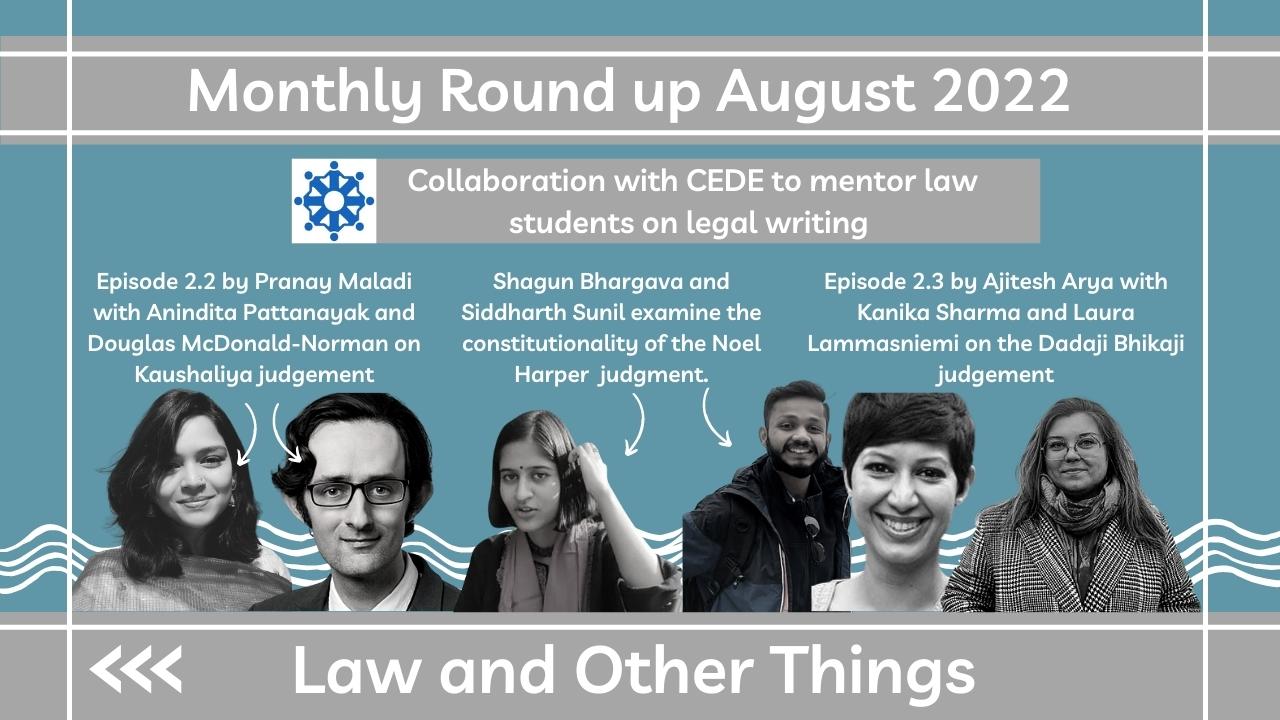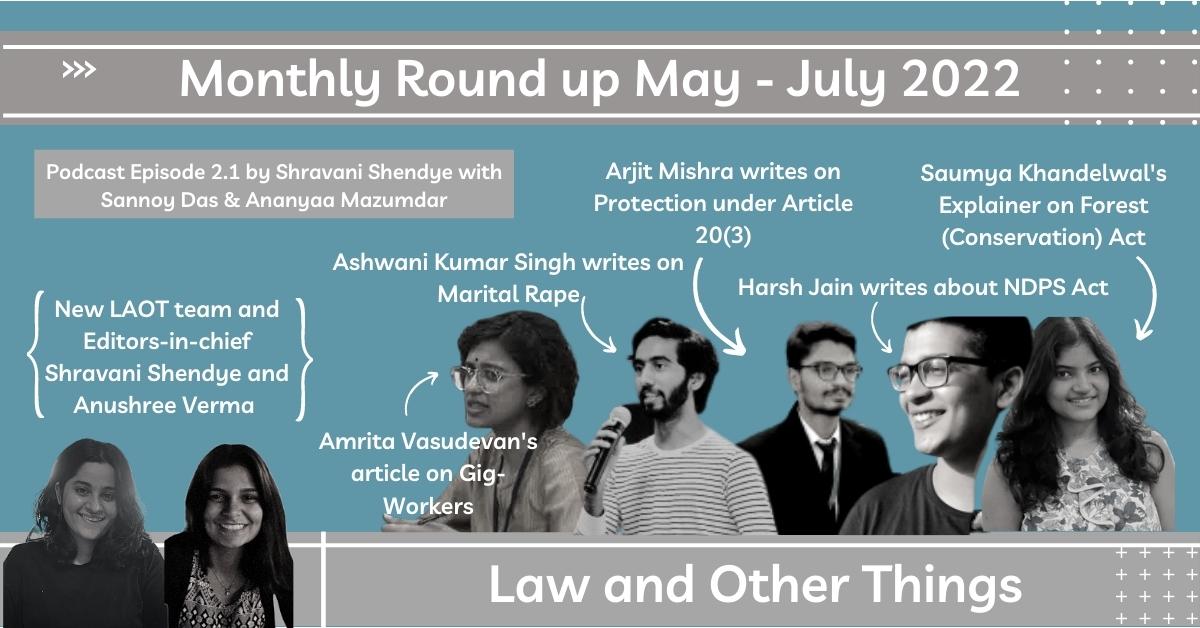Law and Other Things published a range of interesting articles and new scholarship discussions to further scholarship in public law. Below we bring you an update on the Blog’s activities during the month of November, 2021.
Blog Posts
We started off with a piece by Kavya Arora and Eishan Mehta titled, “Addressing Intersectionality and Access to Justice: The Need for An Anti-Discrimination Legislation”. In this piece, the authors argue that to further the Constitution’s commitment to substantive equality and address intersectional discrimination, the constitutional provisions are not sufficient. They discuss horizontality and intersectionality to further access to justice in the form of equality legislation.
Next, Anaya Narain Tyagi in her article titled “Cultural Dissent in Hindutva Cases” unpackes the absence of cultural dissent in the landmark Hindutva decisions of the Supreme Court and the academic scholarship built upon it. She begins her discussion by critiquing the Ramesh Yeshwant Prabhoo v. Prabhakar Kasninath case by building upon Madhavi Sunder’s doctrine of cultural dissent. She concludes by emphasising that a conversation about internal dissent within a culture needs to take the centre stage.
This was followed by an Explainer piece “Bail under the UAPA” by LAOT’s junior analyst Harsh Jain, who examines the stringent conditions imposed on the grant of bail under the UAPA along with recent judicial developments in that regard. We had another junior analyst, Mrityunjoy Roy unpack the recent Gujarat HC order in Peter Nazareth v. State allowing constitutional challenge to the alcohol prohibition policy in Gujarat on grounds of right to privacy. It explains the history of prohibition challenges in India and the newly emerging Art. 21 challenges to them.
Then we published Arti Gupta’s two-part piece titled “Subsuming Sexuality Rights within the Nation’s Progress”. In Part I, the author analyzes the flipside of the affirmation of sexuality rights, through an analysis of pictures depicting the performance of these rights. The author locates the sexual minorities in the teleologies of modernity and Homonationalism to explain how the sexual minorities are subsumed in Nation building process. In Part II, the author continues the analysis through an analysis of pictures depicting the performance of these rights. She shows how the global identities are constructed under frameworks of neoliberalism.
Lastly, Dharshini Sugumaran and Padmavathi Prasad in “The Shaheen Bagh judgment and what it means for the right to freedom of assembly in India” critique the decision of the Supreme Court in Amit Sahni v. Commission of India (2020), regarding the constitutionality of protests in public sites. The authors argue that the judgement is in stark contrast to international human rights and falls short of protecting the right to assembly in Article 19 of the Indian Constitution.
New Scholarship
We began discussion on Danish Sheikh’s book “Love and Reparation: A Theatrical Response to Section 377” in India. The book consists of two plays about the legal battle to decriminalize homosexuality in India. The author navigates various questions surrounding India’s queer rights and freedom with a deft interweaving of the legal, the personal, and the poetic. The discussion started off with an Introductory Piece by Douglas McDonald. Douglas notes that “on both the macro level (his use of theatre as a tool for pedagogy and activism) and the micro level (repeated references to Harry Potter), this book is the essence of Danish Sheikh.” Next, we published the first response piece by Surabhi Shukla where she notes that the most striking, was the ability of the plays to accurately demonstrate the acute unpredictability of courtroom operations—a lesson that extends well beyond the Section 377 cases. She hopes that the characters would provide a moment of relief to the members of the queer community. Further, Akhil Kang reviewed the book and notes that Danish’s book does what his play failed to do – “It makes law more accessible. In many ways it goes beyond the law. It gives us a moment to appreciate what many queer folks have been denied – the mundane and not just the fantastic lives of Section 377.” However, this book, he writes, “misses out crucial junctions where sexuality is multi-faceted.” In the coming weeks, we will be publishing the remaining response pieces.
We also published copies of J&K Constituent Assembly Debates and Autonomy Report, 2000, shared with us by Zaid Deva, whose article in the Indian Law Review was recently discussed at LAOT. We have made them available for researchers and scholars in order to enhance access to this useful resource, and hopefully initiate discussion around their importance in understanding constitutional law vis-a-vis Jammu & Kashmir.
Lastly, we published a summary by Unnati Ghia of he her paper titled “Affirmative Action under Article 15(3): Reassessing The Meaning of “Special Provisions” for Women” published in Vol. 32(2) of National Law School of India Review (NSLIR). The paper illustrates the need for a reconceptualization of Article 15(3) within a substantive equality framework, in light of the existing paternalistic application of Article15(3).
For more updates, you can follow us on Facebook, Linkedin, Twitter or Instagram. Subscribe to our newsletter here.



